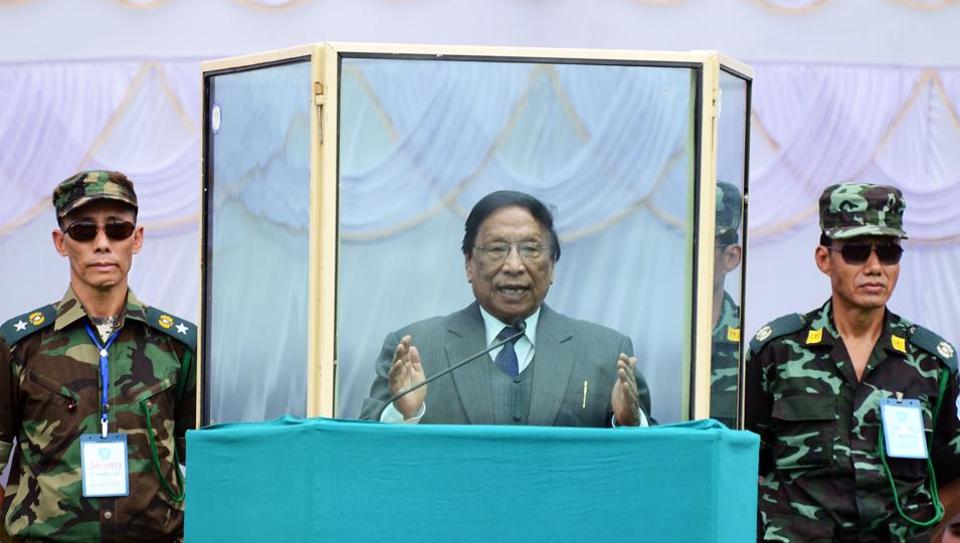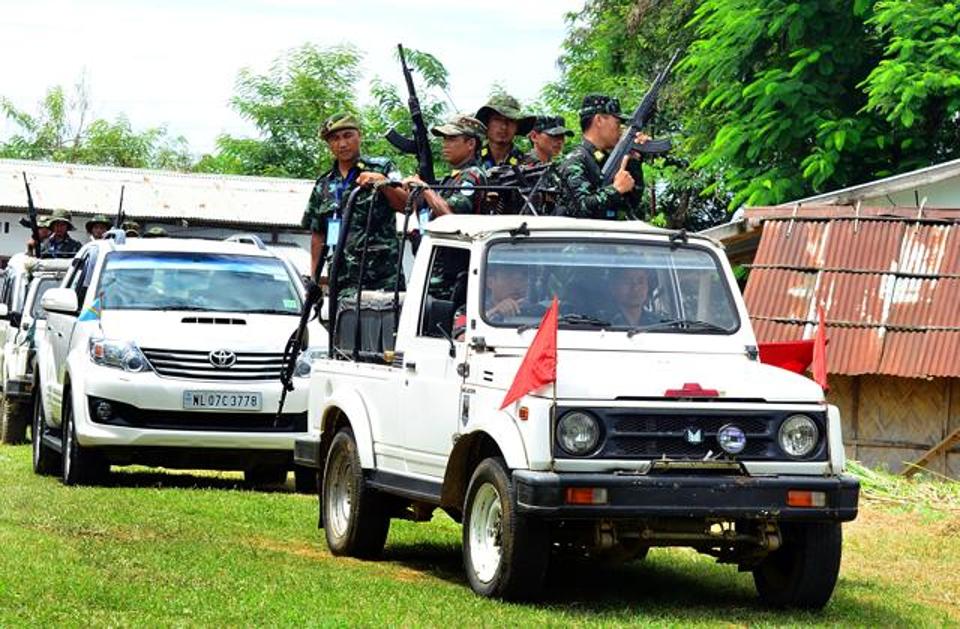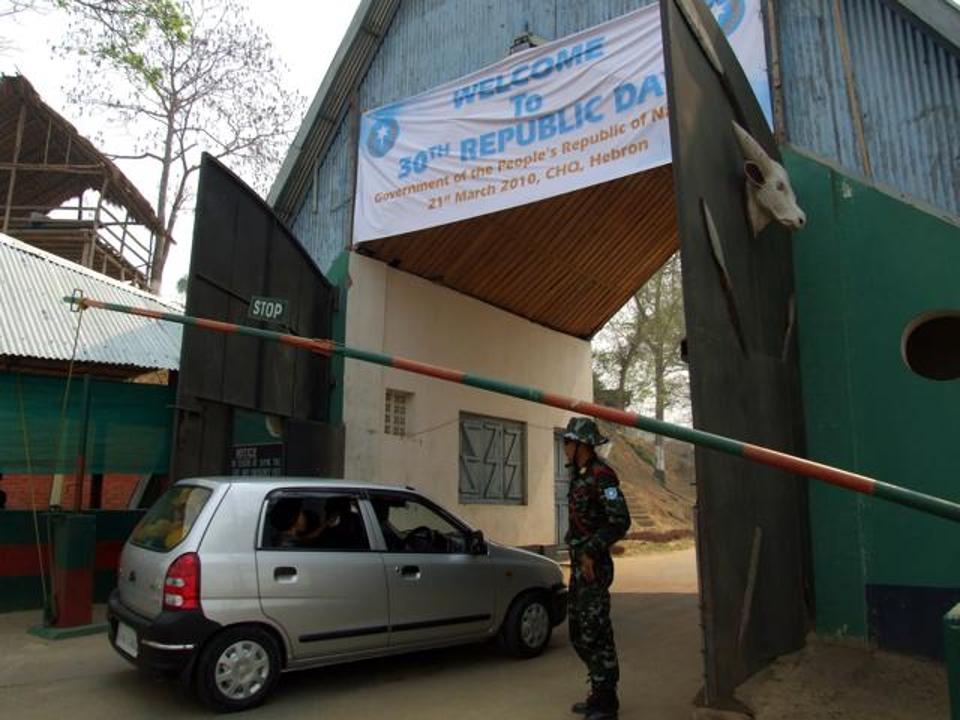
Governments run by extremist groups in Nagaland have refrained from expanding their budgets and revising old ‘tax’ rates after their revenues suffered because of Delhi’s decision to scrap high-value currency last year.
The extremist Isak-Muivah faction of National Socialist Council of Nagaland (NSCN-IM) and its rival Khaplang outfit run parallel governments in areas they dominate. These underground administrations, like the elected ones, hold budget sessions and levy taxes – extortion in the language of the official state government – on local businesses and the salaried class.
The NSCN-IM’s Government of People’s Republic of Nagalim (GPRN) held its two-day budget session last week. This session ended three days before Nagaland chief minister Shurhozelie Liezietsu presented a Rs 1,438-crore deficit budget for the 2017-18 fiscal in the state assembly.
“The budget proposal for the 2017-18 fiscal was unanimously approved by the house after thorough deliberation,” Medo Angami, GPRN’s minister for Chaplee (financial) Affairs, said.
The NSCN-IM has been on ceasefire mode since July 1997. The Khaplang faction reneged on such a truce in 2015.
Angami did not specify the size of the budget that allocates much of the money for the Naga Army and the rest for the GPRN. But a member of NSCN-IM’s publicity wing said the size of the budget for the next fiscal is “more or less” the same as that of the current (2016-17) where “tax collection suffered due to the high-value cash ban” last year.

The NSCN-IM’s budget for the 2016-17 fiscal was more than Rs180-crore, but the outfit’s ‘revenue’ collection suffered because the recall of Rs 1000 and Rs 500 banknotes hurt traders and business houses coughed up less than their stipulated ‘shop tax’ and ‘commercial tax’.
A Nagaland-posted central intelligence officer confirmed that “underground taxes” have virtually remained unchanged.
“House tax charged by the rebel governments has remained the same at Rs 110 per house per year. They are also likely to continue charging Rs 250-500 to issue work permit or identity cards to outsiders,” the officer said.
Also unchanged is the ‘income tax’ slab for the salaried class, both government and private sector. Each employee in Nagaland has to pay 24% of a month’s gross pay annually to the NSCN-IM, though resident tribes of the state are exempt from paying taxes to the state government.
The intelligence officer further that the GPRN has made the commercial and shop taxes variable, linking them to the mood and fiscal health of the market. “Already, the annual tax for big shops has come down from Rs 10-lakh to Rs 1 lakh or less.”

Members of the extremist groups’ governments agree it has become tougher for them to collect taxes, even at gunpoint. But what is pinching them the most has been a fairly new trend of their “tax collectors” issuing receipts that account for only a tenth of the money collected.
“The rebels generate a bulk of their so-called tax from goods-laden trucks that enter via Assam for delivery within the state or in Manipur beyond. This tax varies from Rs 15,000-35,000 per six, 10 or 12-wheel trucks. Often, the UG (underground) tax collectors issue receipts of Rs 1,500 for 15,000 collected or Rs 2,500 for Rs 25,000 collected,” said a police officer based in Dimapur, Nagaland’s commercial hub near where the NSCN-IM has its peace headquarters.
The amount in the receipts goes to the ‘treasury’ of the underground governments while tax collectors pocket the ‘unaccounted’ money. The GPRN, for one, intends to plug such ‘revenue’ leakage.
Source: Hindustan Times


